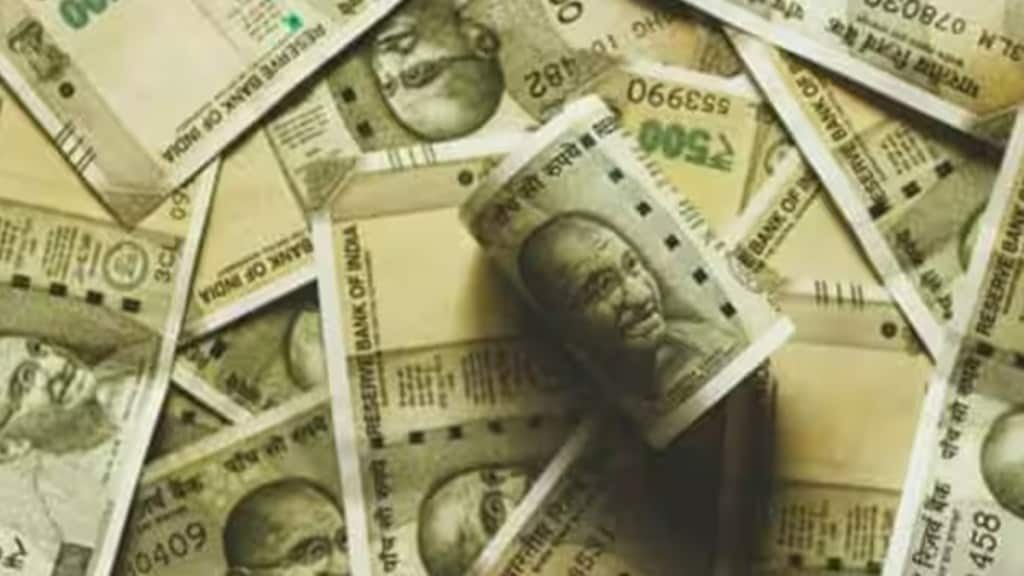Sunil Vachani is in an ecstatic mood these days. A day after the government’s decision to curb IT hardware imports last week, the founder-chairman of Noida-headquartered Dixon Technologies tweeted that the “landmark” move will make India a “manufacturing hub for the world”.
The enthusiasm is understandable. Vachani, who has been named India’s Rs Aatma Nirbhar Champion’ by Dataquest magazine, will be an obvious beneficiary of the government’s move, which has now been kept in abeyance till November 1. The import restrictions are aimed at prompting many companies operating in India to switch to local manufacturing, and Dixon hopes to see its order books swell.
Dixon’s revenue has grown over four times to Rs 12,192 crore in FY23 from Rs 2,853 crore in FY18. And, according to Jefferies, this is likely to grow over three times in the next three years.
That’s great going for Vachani, who borrowed Rs 20 lakh from his father to set up Dixon in 1993 to manufacture television sets.
The stock market knows which way the wind is blowing – a reason why post the announcement by the government on Thursday, the share price of Dixon rose as much as 12% to Rs 4,618.50 in the last two sessions. On Friday, it touched a 52-week high of Rs 4,813.
Thursday’s move was just the latest in a series of the government’s Make-in-India initiatives in the sectors that Dixon operates in. The electronics manufacturer has benefitted hugely from the productivity-linked schemes for lighting, mobile device, telecom products, IT hardware, air conditioners, and wearables and hearables.
The sharp revenue growth will largely be contributed by the company’s IT hardware business. In the April-June quarter, this segment contributed about 3% to the company’s overall top line of Rs 3,272 crore. The company currently has Acer as its anchor customer in the laptops business, for which it makes products. The company was also the beneficiary of the earlier IT Hardware PLI scheme and even qualified for the FY22 incentives along with Dell and Bhagwati (Micromax).
Dixon is now looking to submit its applications under the revamped Rs 17,000-crore IT Hardware PLI scheme.
Optiemus Electronics that forayed into the laptop manufacturing space to make laptops for Primebook is also looking at increasing capacity. The company is one of the largest contract manufacturers of hearable and wearables for companies such as Noise, Boult Audio, and Harman. Optiemus is also a beneficiary under the smartphone PLI scheme.
Atul Lall, managing director and vice-chairman of Dixon Technologies, said at the company’s earnings call that the company is in advanced stages of discussions with some large global brands (in laptops and tablets). “We are hopeful that these discussions are going to be positive and is going to be fructify into business.”
According to industry executives, Dixon is also in talks with Reliance Retail for manufacturing the JioBook Laptop, just like it is making JioBharat phones for Reliance Jio.
Further, the increase in contract manufacturing in the laptops and PC segment will also help Dixon to leverage benefits under the revamped Rs 17,000-crore IT Hardware PLI scheme.
“The government has recently announced a revised PLI scheme for IT Hardware products with higher incentive payout, we’ll definitely be part of this scheme,” Lall added.
“This is another step towards pushing indigenisation, as the government is focusing on increasing local manufacturing, strengthening the domestic valuation chain, and enhancing value addition since 2020,” brokerage house Jefferies said.
Dixon also benefited majorly when the government in August 2020 restricted imports of LED televisions in India as it met 30% of the industry demand.
Lately, the company pivoted from prescription manufacturing services to original design manufacturer (ODM) for smart TVs. This means that the company has started doing television designs on the Google platform and the third-party brands can order them to manufacture televisions.
Dixon, which sold 7.1 million televisions in the June quarter, counts companies such as Samsung, Tizen, Xiaomi as its customers in the television segment. The consumer electronics segment, which includes television, contributes about 27% of the Dixon revenues.
Dixon is a major contract manufacturer for feature phones and smartphones and counts companies like Motorola, Samsung, Nokia, Xiaomi, itel, etc, as its clients.
“We have got increased order book from Motorola for 1.3 million to 1.5 million smartphones in July-September against at least 1 million in Q1 (April-June). We expect the volume to increase to 2 million a quarter, including some large export orders from Q3,” Lall said, adding that the production for Xiaomi smartphones is expected to start sometime in September or early October.
For Jio Bharat phones, the company has got an order for 15 million units, and sees this as a Rs 1,500-crore business.
In April-June, Dixon’s revenue from the mobile and EMS (electronic manufacturing services) business rose 38% y-o-y to Rs 1,795 crore. The business contributes the maximum, about 55% to the company’s revenue.
Among the domestic companies, only Dixon has been able to qualify for incentives under the smartphone PLI for three years.

